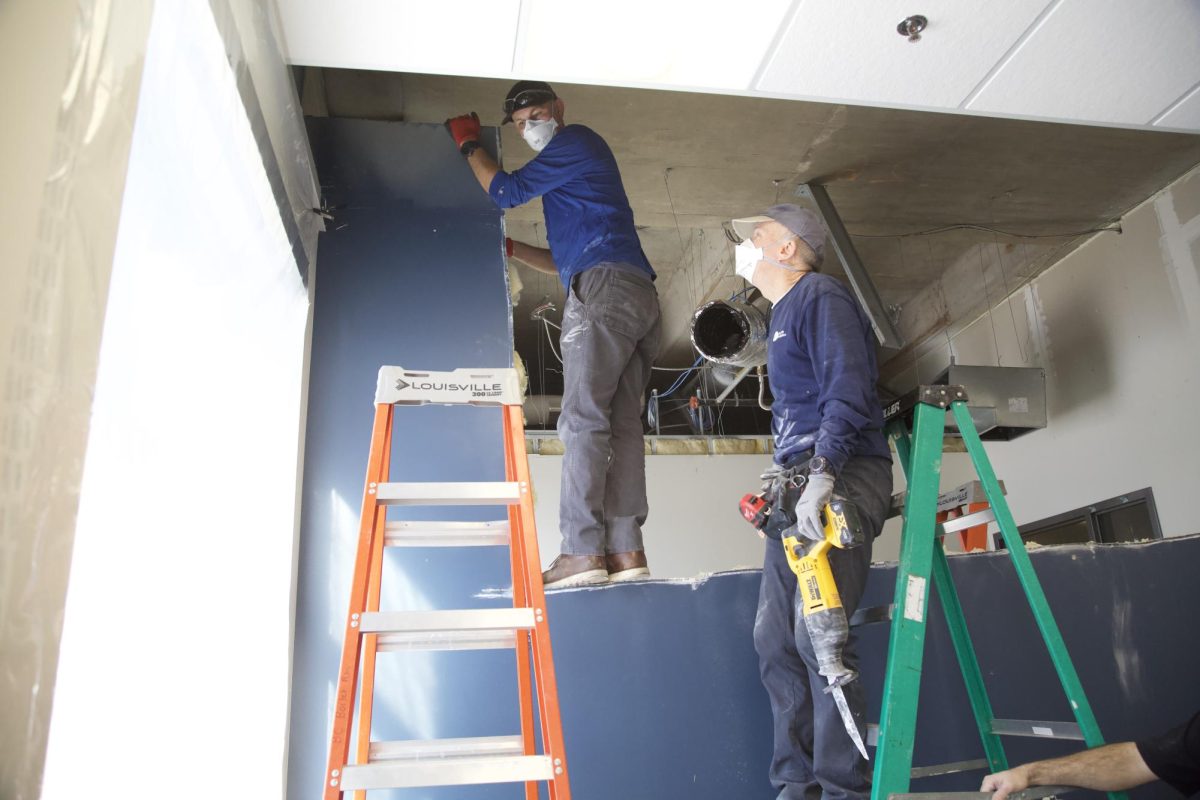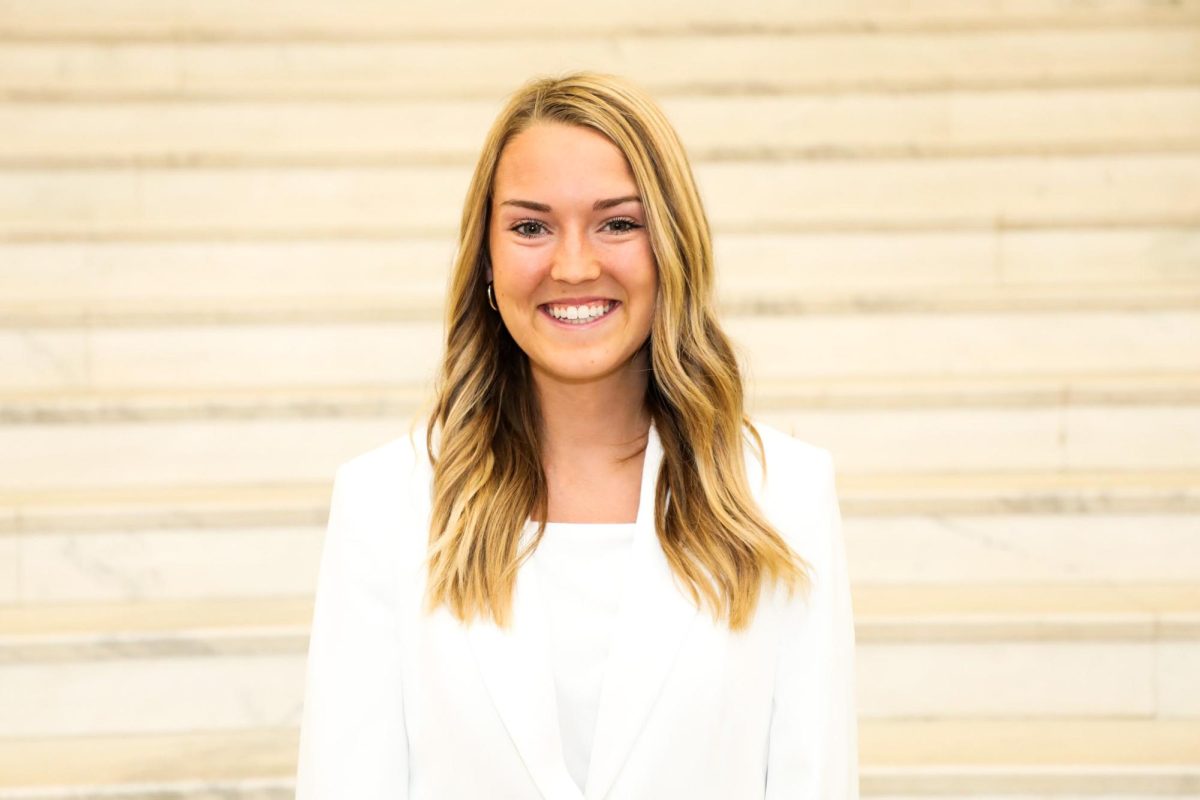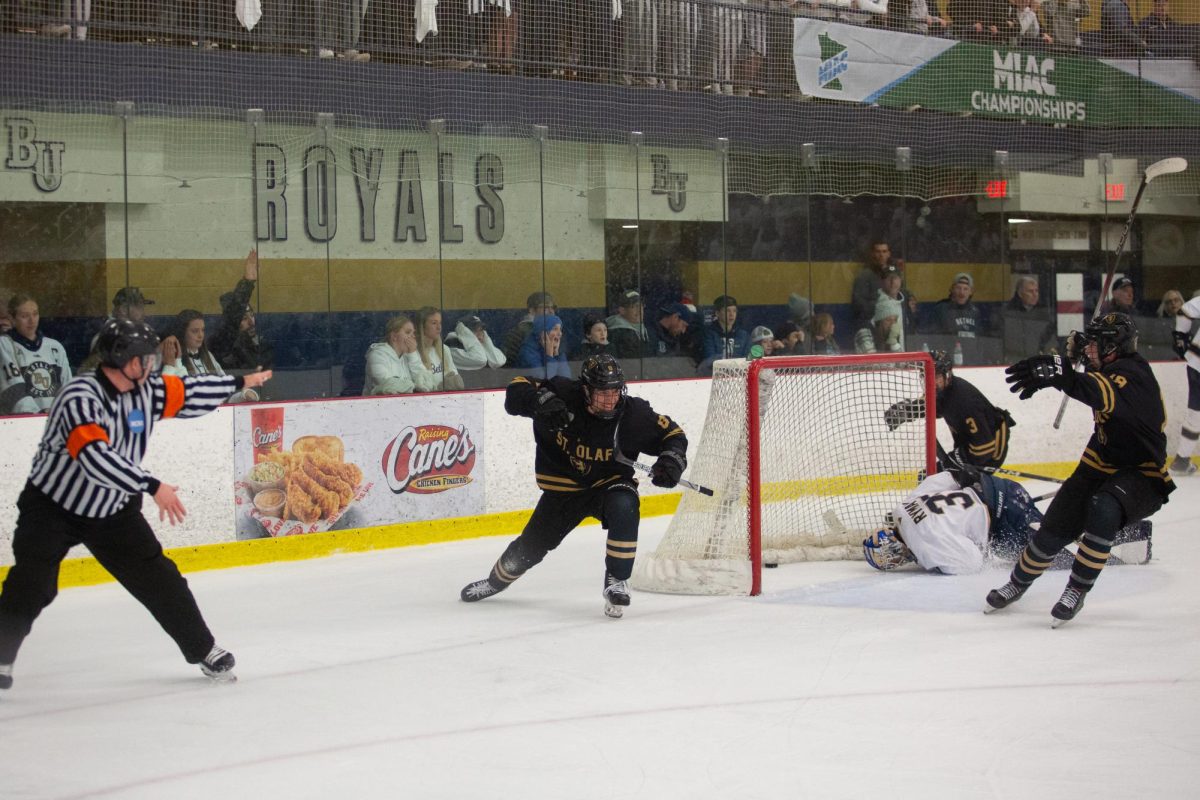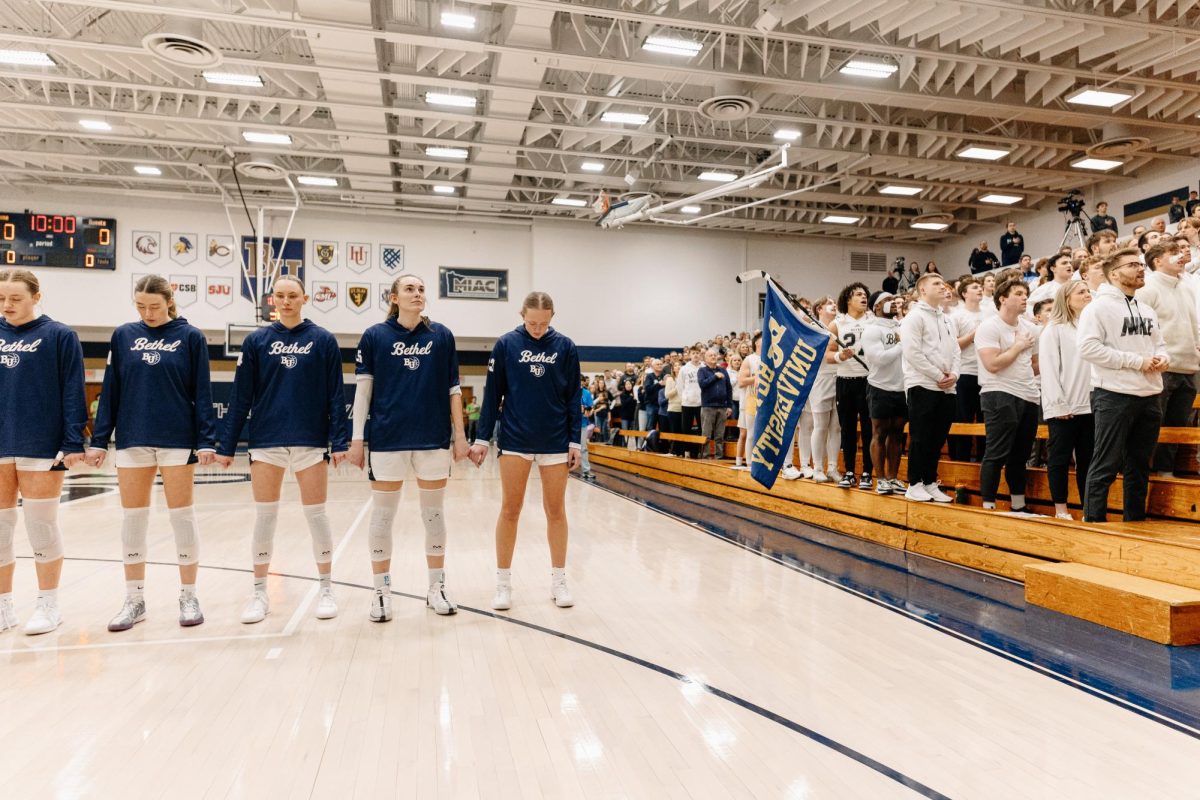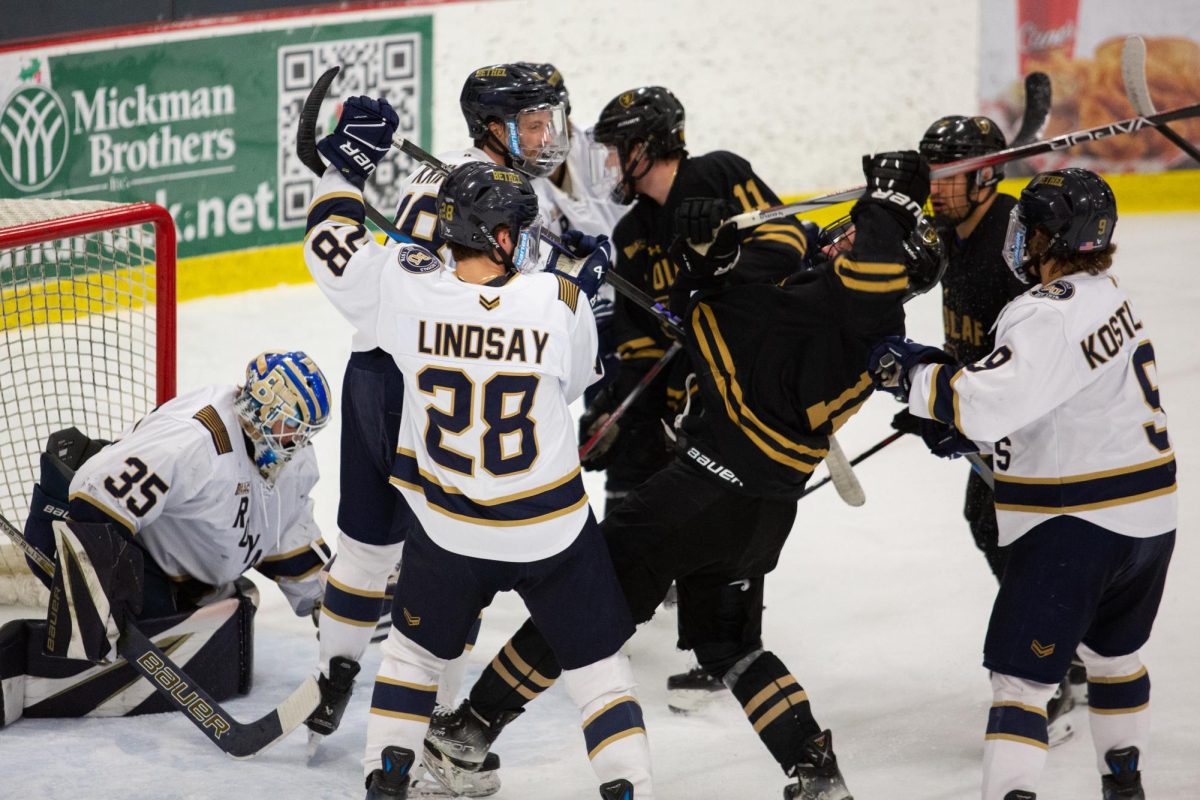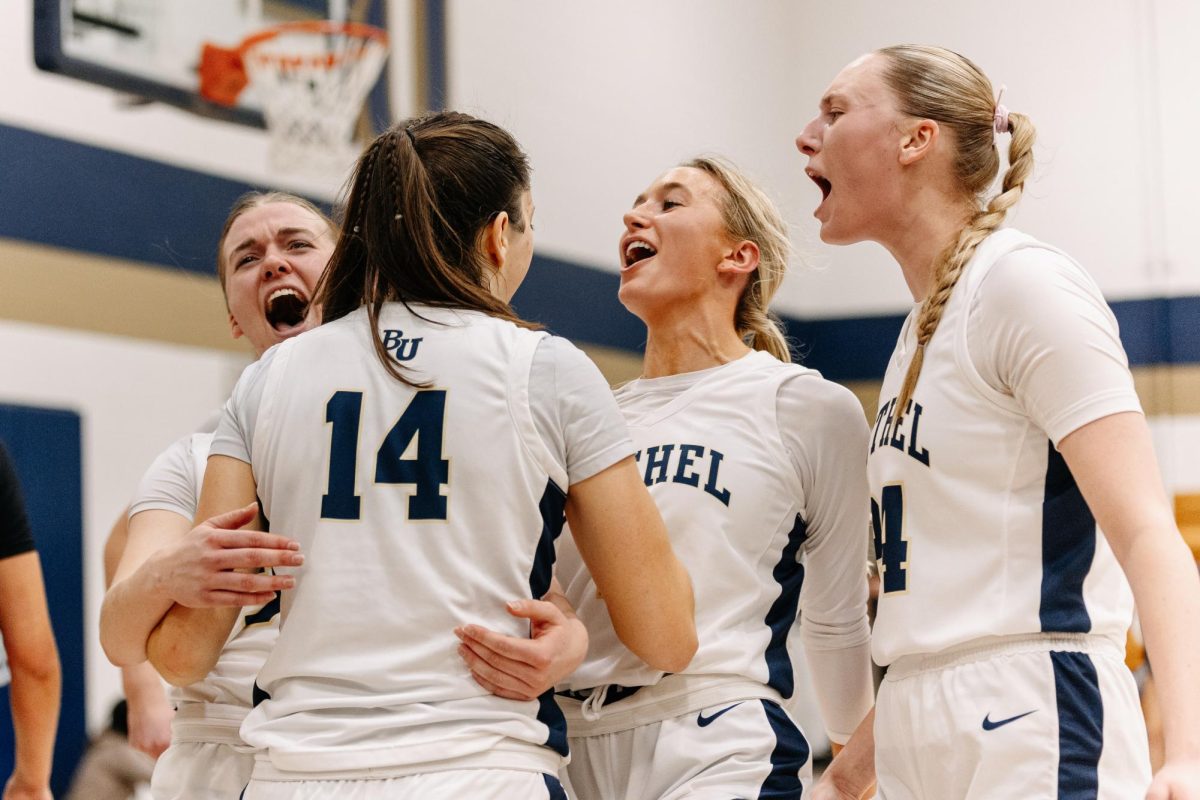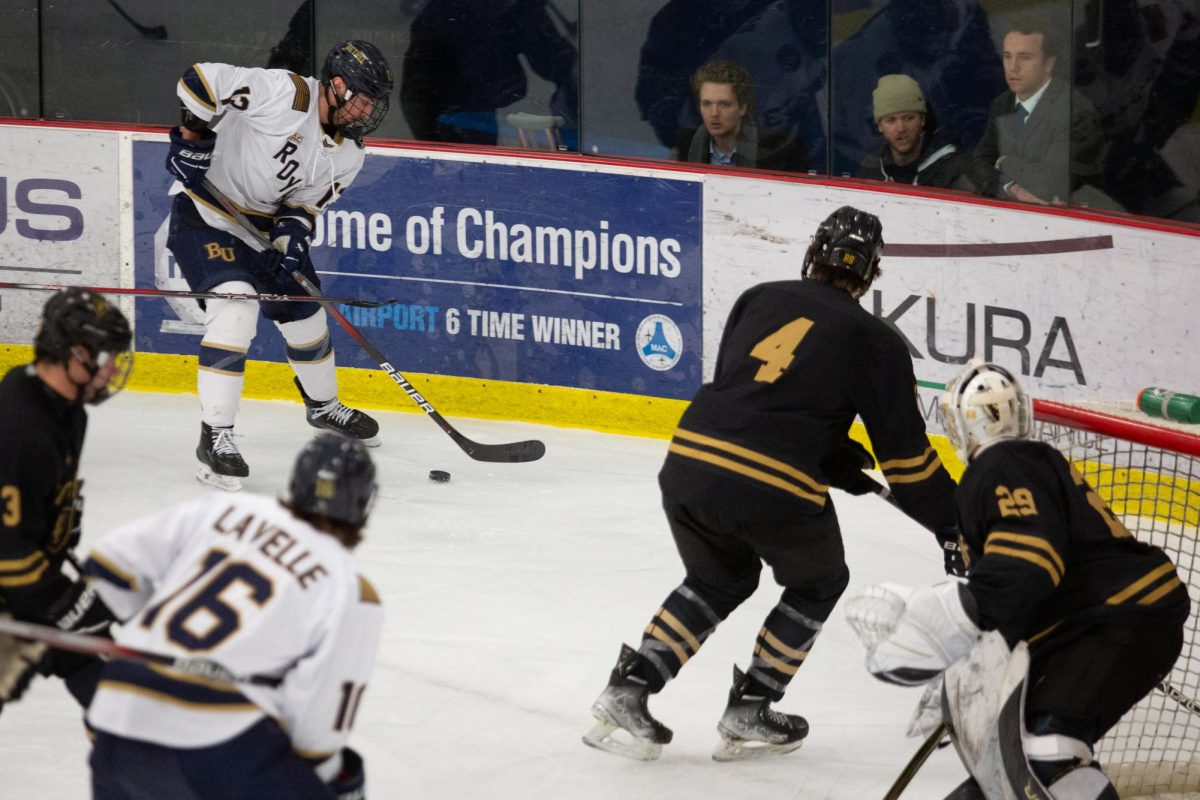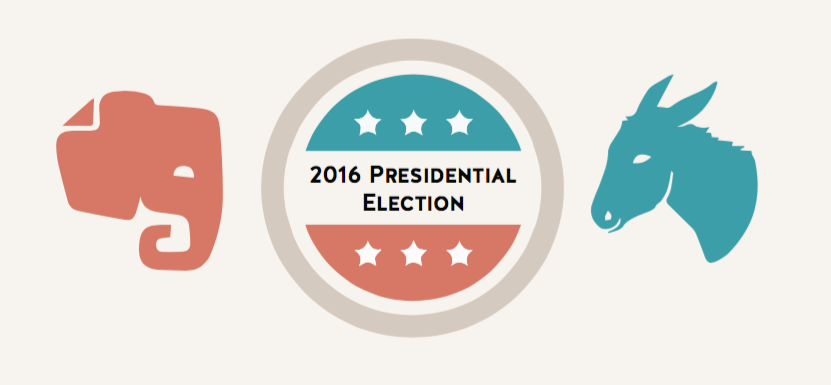A seemingly split student body raise questions of political tolerance and understanding among Democrats and Republicans.
Marissa Gamache | News Editor
Cece Gaines | Freelance
Kellie Lawless | Freelance
President of the College Republican National Committee (CRNC) chapter at Bethel, junior Sterling Harer was energized by the number of Bethel students that went out and cast their vote on caucus night. On March 1, over 150 students from Bethel showed up at the designated Republican caucus site, blowing last year’s number out of the water. Last year, Harer recalls fewer than ten showing up.
“I am very proud of Bethel students on caucus night,” Harer said. The local GOP also took notice, sending Harer emails of appreciation over the support that Bethel showed on Super Tuesday.
With a strong CRNC and currently no College Democratic National Committee on campus, some voices are seemingly silenced from the political conversation because the lack of a platform.
“Thankfully the College Democrats club is in the process of being re-established,” Bethel Student Government (BSG) Vice President Taji Onesirosan said. “[This] will certainly allow for their voice to be heard during this coming presidential election.”
Harer is looking forward to a stronger Democratic voice on campus, noting that having Democrats and Republicans both on campus will lead to important discussion.
With a political divide prominent and rather expected at an institution the size Bethel is, the question arises of how students feel their political affiliation stands in comparison to their peers.
“I do believe there is a political divide on this campus,” BSG President Zoe Vermeer said, adding that she thinks it’s one of the largest divides at Bethel. “I do not think the Bethel community would find consensus on any candidate.”
In a poll generated to gauge the political leanings of the Bethel community, many students were set on their vote. Others were conflicted due to Ted Cruz and John Kasich dropping their presidential bids within days of each other. With Cruz and Kasich no longer a voting option, data shows the outcome of students voting for an independent candidate is high. The top two candidates Bethel students supported were Bernie Sanders (29 percent) and Other (26.1 percent).
Half of the students polled believed Bethel would not support their political affiliation; 33 percent of students believe Bethel would support their political affiliation; and 17 percent of students are unsure. Some students thought Bethel was “too conservative” or “too liberal,” but the general consensus was that both Republicans and Democrats felt that their voice would not be supported.
A handful of students believed the average college student was not educated enough in politics to make an informed vote. Conversely, there were select students that wanted Bethel to “foster healthy conversations” around politics and not discourage conversations involving differing opinions.
Many people on campus seem rather unimpressed with the current candidates running and there wasn’t overwhelming support for any particular candidate. Bernie Sanders had the most support of those polled, as 29.5 percent of students their vote for the senator from Vermont.
“The election is different from the past because of the people running,” Onesirosan noted. He commented on how more people are engaged in politics because of the diverse backgrounds of the candidates thus far. “Hillary, Trump, Sanders, and even people like Ben Carson and Carly Fiorina have not been the typical people running for the Presidency, which I believe has added to the intrigue.”
As all other Republican candidates have dropped out, Donald Trump appears to be the GOP nominee. In the Democratic Party, both Hillary Clinton and Bernie Sanders have acquired considerable wins. Clinton is substantially ahead of Bernie in pledged delegates, including superdelegates, currently with 2,165 in comparison to his 1,357, according to Associated Press tallies.
Counting down the days until the November election, Bethel students will find themselves needing to pick a side. With candidates from each party having differing views and opinions, the campus can expect the CRNC and the CDNC to be facilitating many conversations in the fall. At the end of it all, the only statistic that will matter is who comes away with more votes on Nov. 8.
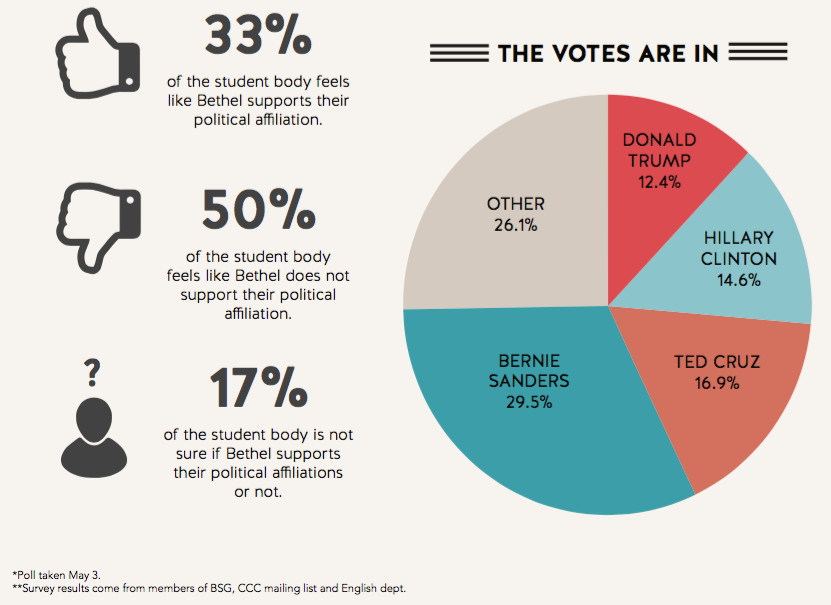 *Survey results come from members of BSG, CCC mailing list and English dept.
*Survey results come from members of BSG, CCC mailing list and English dept.

